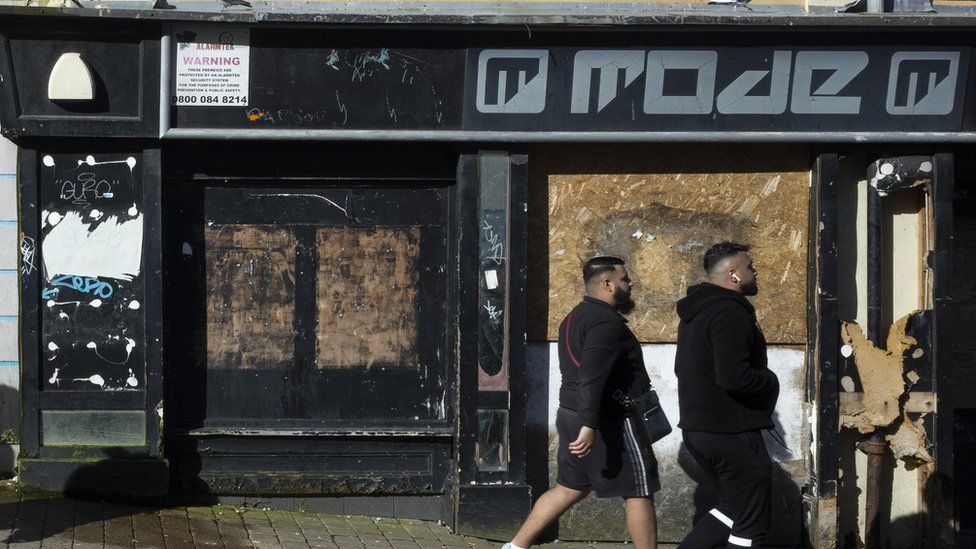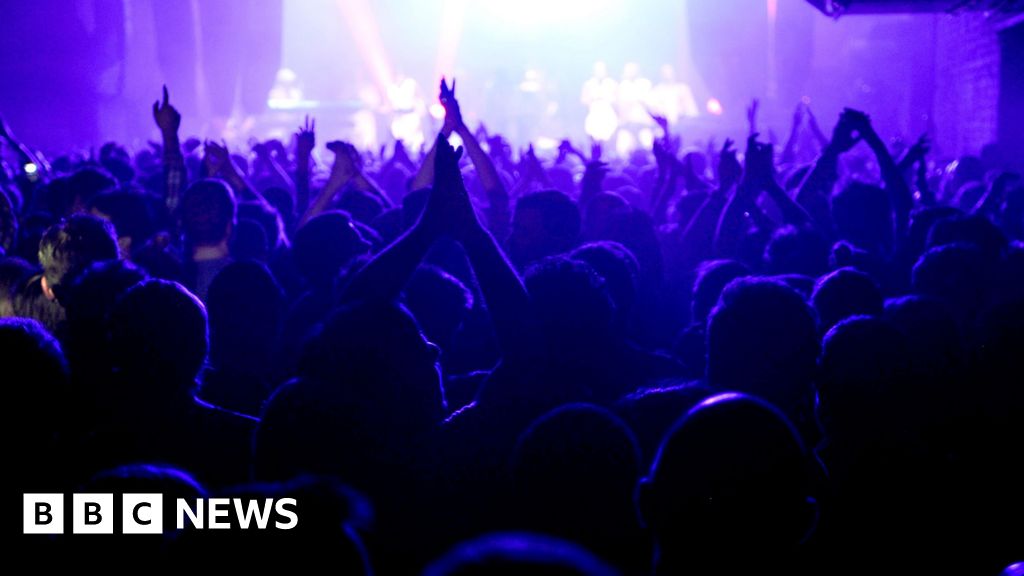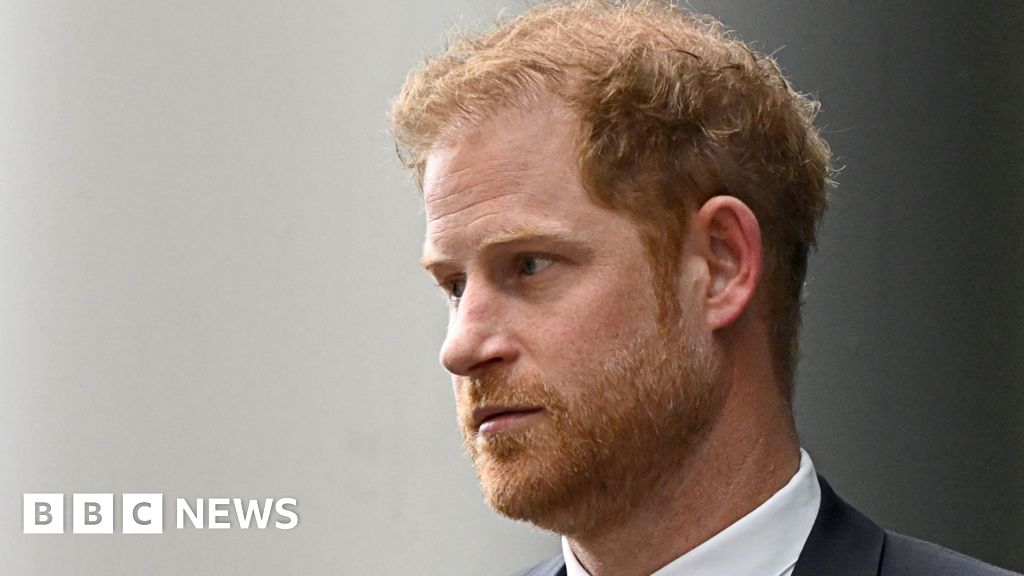ARTICLE AD BOX
By Daniel Rosney
Entertainment reporter
 Image source, Getty Images
Image source, Getty Images
Boarded up nightclubs are appearing more and more in towns and cities across Britain
Britain has 20% fewer nightclubs than it had when the country first went into lockdown in March 2020.
Nightclubs have been in decline for the last 15 years or so and figures given to BBC News by the Night Time Industries Association - a trade body promoting the sector - highlight that the trend of closures is continuing.
That's despite the government offering billions of pounds in grants and loans throughout the pandemic to support hospitality businesses which were forced to shut down.
The NTIA recorded the lowest number of nightclubs on record - 1,130 - in its latest set of data, based on the situation in England, Wales and Scotland. In March 2020, when the figures were last published, the number was 1,418.
The body is now warning that the "culmination of pandemic debt, growing energy bills, workforce challenges, supply chain, increased insurance premiums, landlord pressures and product cost increases have created a perfect storm".
Some parts of the country fared worse than others, such as the Midlands in England, where nearly 30% of nightclubs have closed since the first lockdown just over two years ago.
On Saturday night, Rosie Saveedra travelled from Halifax to Loughborough for a night out with her cousin Holly Jarram in Loughborough.
"I've never seen as many shutters on a Saturday as you do now," Holly told BBC News.
"The nightlife has certainly changed from 10 years ago, it used to be booming and full of people but now there's barely anybody in sight."
Since all social restrictions in England were lifted, in July 2021, she's coming out "a lot less" than before Covid-19 "purely because we used to work in the office and you'd go for drinks after work and it would turn into a night."
Image source, Rosie Saavedra
Image caption,Rosie Saavedra and Holly Jarram describe the streets as "being dead" on a Saturday night now
Working from home, and a change in routine for millions, is one of the major factors the hospitality industry hasn't fully recovered.
Rosie thinks it's more noticeable in towns than cities, especially in Yorkshire.
"Venues are closing at quite a rapid rate," she told the BBC. "The economy is going downhill so it's to be expected."
The NTIA said in a statement: "Operating cost pressures coupled with consumers with less disposable income have seen the early stages of a recession with slowing ticket sales and visitor frequency."
Mohammed Abib's takeaway shop used to be opposite a nightclub - but it's closed down now
The situation is also having a knock-on effect on other businesses.
"The price is going up and everyone is trying to save some money because the cost of living is going up day by day and we're struggling now," explained kebab shop manager Mohammed Abib in Loughborough town centre.
He says the rate at which nightclubs are closing is having a direct impact on his business and he's worried about things getting worse.
At 22:30 on Saturday night there were no customers in his Peri Peri Delight takeaway, next door to a building society that has "where people make the difference" printed on its front.
"We used to have so many people queuing but now you can't see anybody," Mohammed explained to the BBC.
Over the next hour there were never any more than three customers at one time in his shop.
"It's really hard and I've spoken to a few of my other friends who are running businesses and they're all struggling because the cost of the food products is almost double now," he said.
"We used to buy a box of wings for £13 and now it's £25 and we can't put our prices much higher because people can't afford it."
A government spokesperson said: "We recognise that nightclubs are important cultural institutions and key drivers of local night time economies, but no national government can control the global factors pushing up the price of energy and other business costs."
Image source, Alice Wilde
Image caption,Alice Wilde says "nothing" about the clubbing experience is the same price as it was before the pandemic
What Mohammed describes is mirrored in other parts of the country, like in Stockton-on-Tees where 23-year-old Alice Wilde lives.
She told BBC News she's going out clubbing a lot less with her friends and it's "been a while" since they went out.
"At the club we used to go to, a double used to be £2, now it's £3.50," she explained to the BBC. "We all prefer staying in now because we can choose the music and we can walk to each other's houses.
"I can buy a bottle of vodka and a bottle of lemonade for half the price of a night out now and it'll probably last me to the next drinks gathering with my mates."
Now on the "rare occasion" Alice goes out it's for "people's birthdays or celebrations" and they'll drink more at home before heading to a club, rather than pay for alcohol in a bar or pub.
Shaun O'Donnell has been a bouncer for 12 years but the venue he worked at before Covid hit didn't re-open
Bouncer Shaun O'Donnell says, in his experience, customers are now more likely to avoid clubs and are instead choosing smaller venues where "the drinks are slightly cheaper".
He told BBC News that the industry is struggling to recruit staff who want to do the late hours at the weekend as people found alternative employment when clubs were shut between March 2020 and July 2021 in England.
"Numbers are really low and the money's not great either so it's putting people off," he explained.
"Everyone's been off getting used to normal bed times and now you're asking people to work until 4 o'clock in the morning. Who really wants to do that?"
O'Donnell predicts "smaller venues will survive" but bigger ones won't when premises stop benefiting from financial support offered to help non-essential retail premises in England as a result of social restrictions.
Hospitality businesses were exempt from paying business rates up until June this year in order to "grow and recover from unprecedented disruption", but they now receive a third off the normal charge for the rest of the financial year.
A Treasury spokesperson said: "We've stood behind the hospitality sector throughout the pandemic with a £400bn package of economy-wide support that saved millions of jobs and offered a lifeline to hundreds of night-time businesses up and down the country."
But NTIA CEO Michael Kill said: "The government needs to recognise the economic, cultural, and community value of clubs and the wider night-time economy. We must protect these businesses, using every means possible, and recognise their importance before it's too late."

 2 years ago
25
2 years ago
25








 English (US)
English (US)